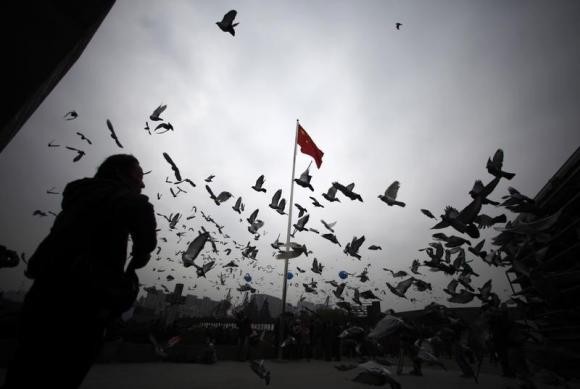More than 70 years have passed since the time-period setting of director Li Lihong's new play, "Er You Lan," which opened in the east Chinese capital of Nanjing on Tuesday evening. Set in 1937, two years before the official commencement of the Second World War, the theater piece is the first time that the spotlight has been primarily shone on the experiences of China's "comfort women."
"Comfort women" is the term that developed after the Japanese military abducted Chinese females as young as 13 to service soldiers in wartime-specific brothels. Historians estimate that nearly a quarter of a million females were forced to perform as sex slaves for periods of time that ranged from several months to numerous years--some eventually succumbed to poor health, while others were just abandoned. A segment of the abductees managed to flee into mountainous regions, where they waited for the Japanese soldiers to leave China.
This week's premiere of "Er You Lan" follows the third installment in a series of photographic books on comfort women that was published in September by photographer Chen Qinggang.
Chen's first two books were published in 2004 and 2007, and he told the media after 2014's "Memoirs of Chinese Comfort Women" was released that "most Chinese comfort women don't dare to go public. They keep their trauma to themselves forever."
He said that he has spoken to less than 50 women in total, who are now elderly citizens, and visited the provinces of Hainan, Shanxi, Hunan and Hebei, among others, for his latest book.
Due to the stigma that exists within Chinese society, many survivors changed their names and moved to far-off locations to start new lives.
Chen explained: "When they shared their miseries with me, it was also the first time that many such families had heard of their stories. It was too private to tell."
Both the scriptwriter, Xie Tao, and director Li are Golden Lion award recipients, and both approached the production of "Er You Lan" with the same sense of compassion that is evident in Chen's work. Xie began collecting historical content in preparation for the script in March so that he could produce a narrative that is realistic and faithful to the inhumane experiences of the comfort women.
Xie also revealed that he is a descendant of survivors of the Nanjing Massacre of 1937--which involved mass murder and mass rape enacted by Japanese soldiers upon the residents of Nanjing--and consequently referred to his commitment to accuracy as a "due responsibility."
Similarly, Li said that his intention is to present "a thought-provoking, tragic story."



























